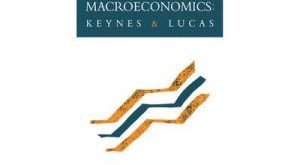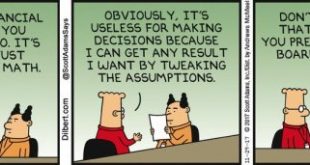On the non-applicability of statistical models Eminent statistician David Salsburg is rightfully very critical of the way social scientists — including economists and econometricians — uncritically and without arguments have come to simply assume that they can apply probability distributions from statistical theory on their own area of research: We assume there is an abstract space of elementary things called ‘events’ … If a measure on the abstract space of...
Read More »Eric Schüldt — räddaren i nöden
Eric Schüldt — räddaren i nöden I dessa tider, när ljudrummet dränks i den kommersiella radions tyckmyckentrutade ordbajseri och fullständigt intetsägande pubertalflamsande tjafs, har man nästan gett upp. Men det finns ljus i mörkret. I programmet Text och musik med Eric Schüldt — som sänds på söndagsförmiddagarna i P2 mellan klockan 11 och 12 — kan man lyssna på seriös musik och en programledare som har något att säga och inte bara låter foderluckan...
Read More »Robert Lucas — nonsense on stilts
Robert Lucas — nonsense on stilts In Michel De Vroey’s version of the history of macroeconomics, Robert Lucas’ declaration of the need for macroeconomics to be pursued only within ‘equilibrium discipline’ and declaring equilibrium to exist as a postulate, is hailed as a ‘Copernican revolution.’ Equilibrium is not to be considered something that characterises real economies, but rather ‘a property of the way we look at things.’ De Vroey — approvingly —...
Read More »La double vie de Véronique
La double vie de Véronique [embedded content] Advertisements
Read More »Molins fontän
[embedded content] Tillägnad alla gamla radikala vänner och kollegor som numera glatt traskar patrull och omfamnar allt de en gång i tiden hade modet att våga kritisera och ifrågasätta … Advertisements
Read More »Econometrics — still lacking valid ontological foundations
Econometrics — still lacking valid ontological foundations Important and far-reaching problems still beset regression analysis and econometrics — many of which basically is a result of unsustainable ontological views. Most econometricians have a nominalist-positivist view of science and models, according to which science can only deal with observable regularity patterns of a more or less lawlike kind. Only data matters and trying to (ontologically) go...
Read More »On tour
Touring again. Visiting Stockholm and making a guest appearance in the Swedish Parliament. Regular blogging to be resumed during the weekend. Advertisements
Read More »The Victims of Game Theory
The Victims of Game Theory Imagine you and someone you do not know can share $100. It is up to you to propose how to divide the $100 between the two of you, and the other player will need to accept or reject your proposal. If he rejects the proposal, neither of you will receive anything. What sum will you offer the other player? I have data on the choices of about 12,300 people, most of them students, who were asked this question. Nearly half of the...
Read More »Financial modeling
Advertisements
Read More »He was my brother (personal)
He was my brother (personal) [embedded content] In loving memory of my brother Peter People say time heals all wounds. I wish that was true. But some wounds never heal — you just learn to live with the scars. But in dreams, I can hear your name. And in dreams, We will meet again. When the seas and mountains fall And we come to end of days, In the dark I hear a call Calling me there I will go there And back again. Advertisements...
Read More » Lars P. Syll
Lars P. Syll







